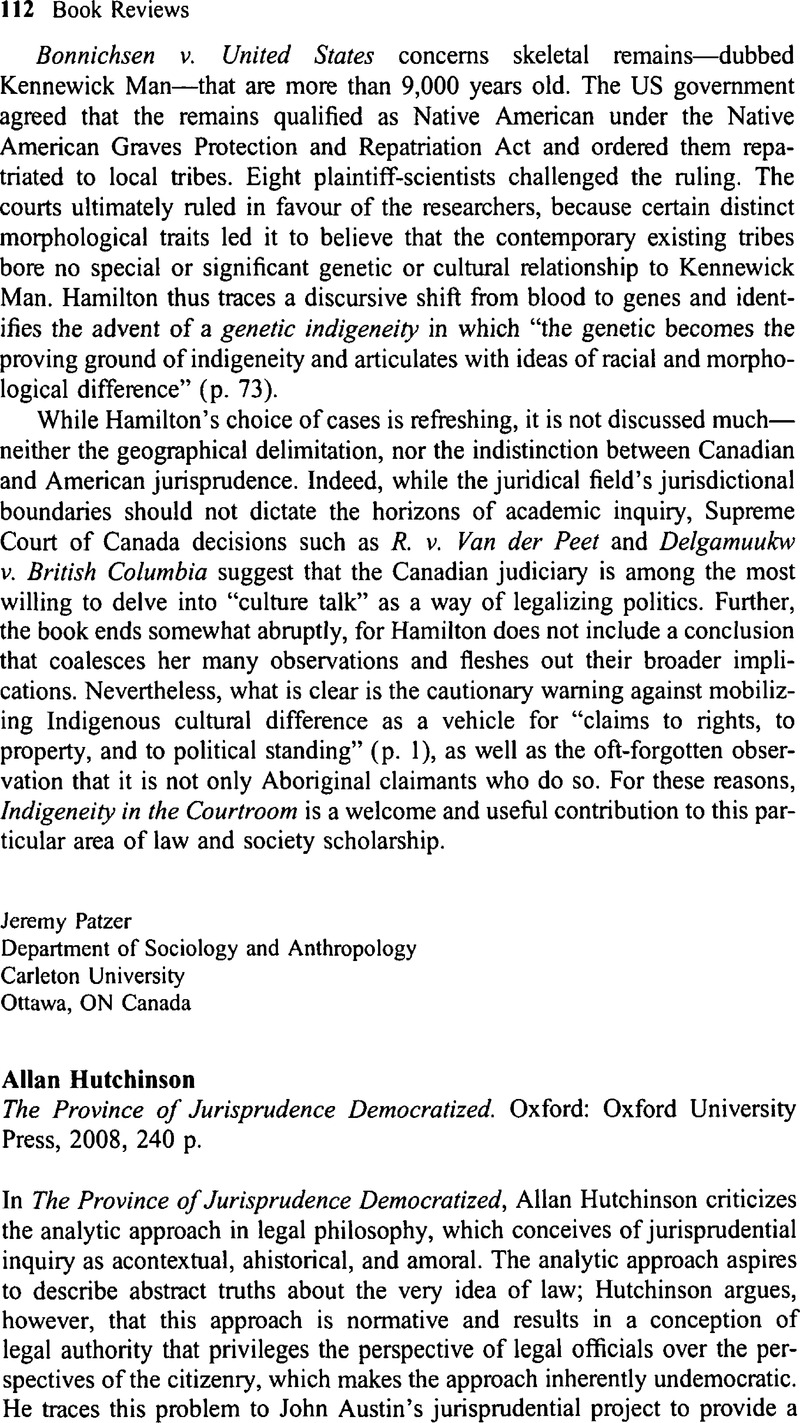No CrossRef data available.
Published online by Cambridge University Press: 18 July 2014

1 Consider the collection of essays in Ginsburg, Tom and Moustafa, Tamir, eds., Rule by Law: Judicial Politics in Authoritarian Regimes (Cambridge: Cambridge University Press, 2008)CrossRefGoogle Scholar.
2 See Pettit, Phillip, Made with Words: Hobbes on Mind, Society, and Politics (Princeton, NJ: Princeton University Press, 2007)Google Scholar, ch. 8. I am not committed to this reading of Hobbes, but it is, I think, the reading that prevails in Anglo-American legal philosophy. For the view that Hobbes does not produce an authoritarian conception of law see Dyzenhaus, David, “Hobbes and the Legitimacy of Law,” Law and Philosophy 20 (2001), 461Google Scholar.
3 Consider, for example, Ronald Dworkin's claim that debates in legal philosophy about the nature of law fundamentally revolve around the question of how the rule of law justifies state coercion. This question already presupposes the existence of a centralized sovereign authority empowered to enable order. Also noteworthy is that Dworkin distinguishes himself from H.L.A. Hart's legal positivism by claiming to offer a theory of law predicated upon a “consensus of (moral) conviction,” as opposed to Hart's “consensus of (amoral) convention.” Again, the underlying assumption is that law is an instrument for consensus. See Dworkin, Ronald, Law's Empire (Cambridge, MA: Belknap Press/Harvard University Press, 1986)Google Scholar.